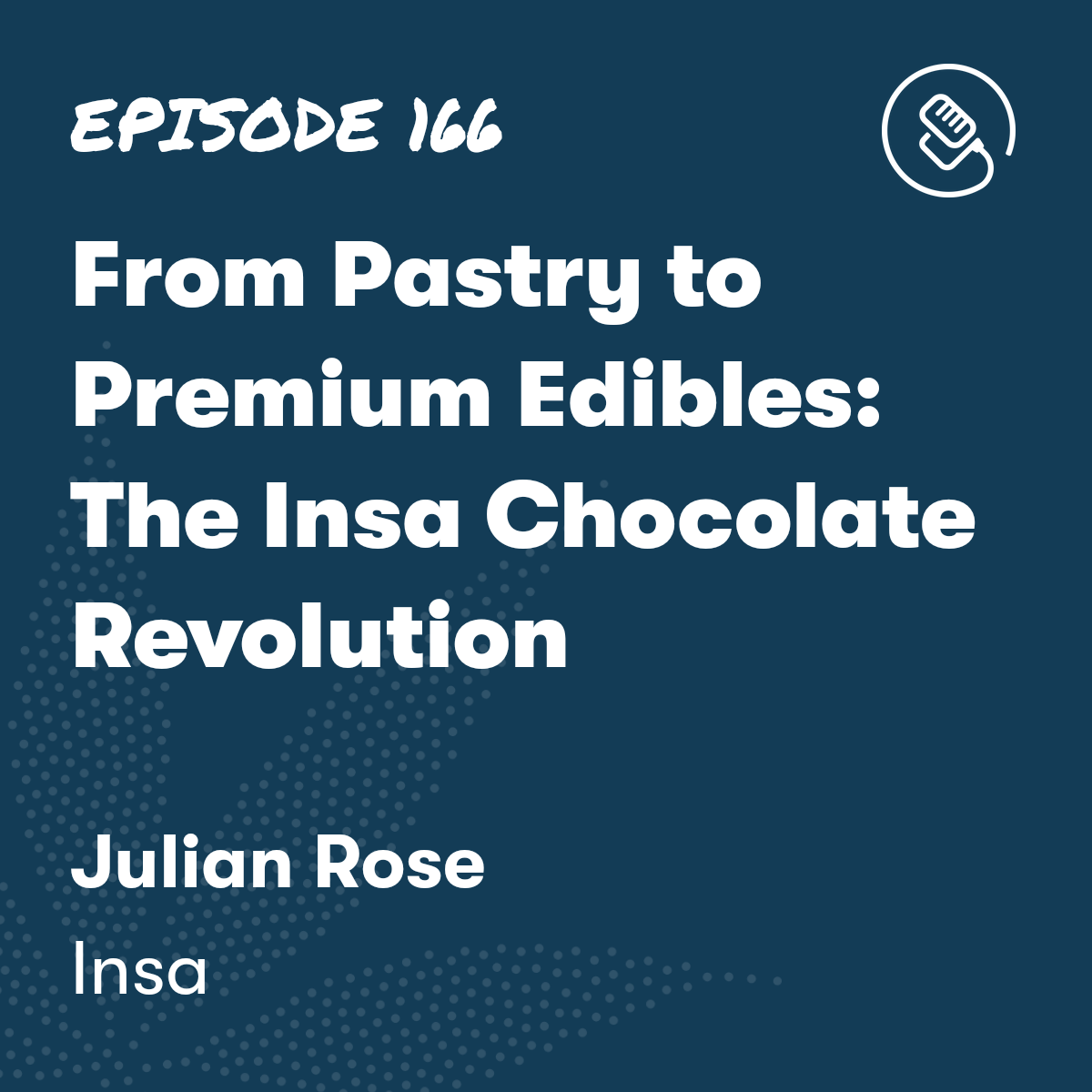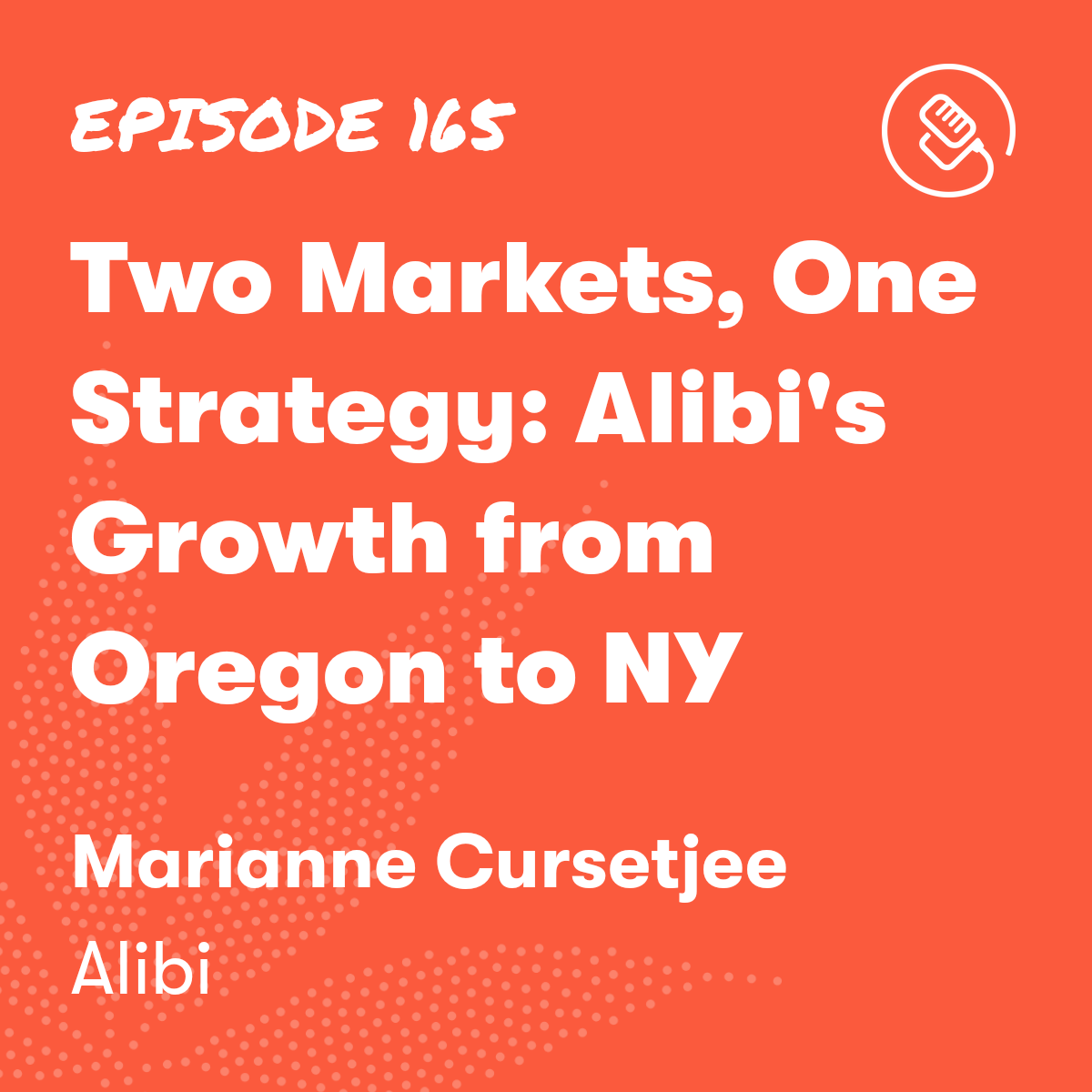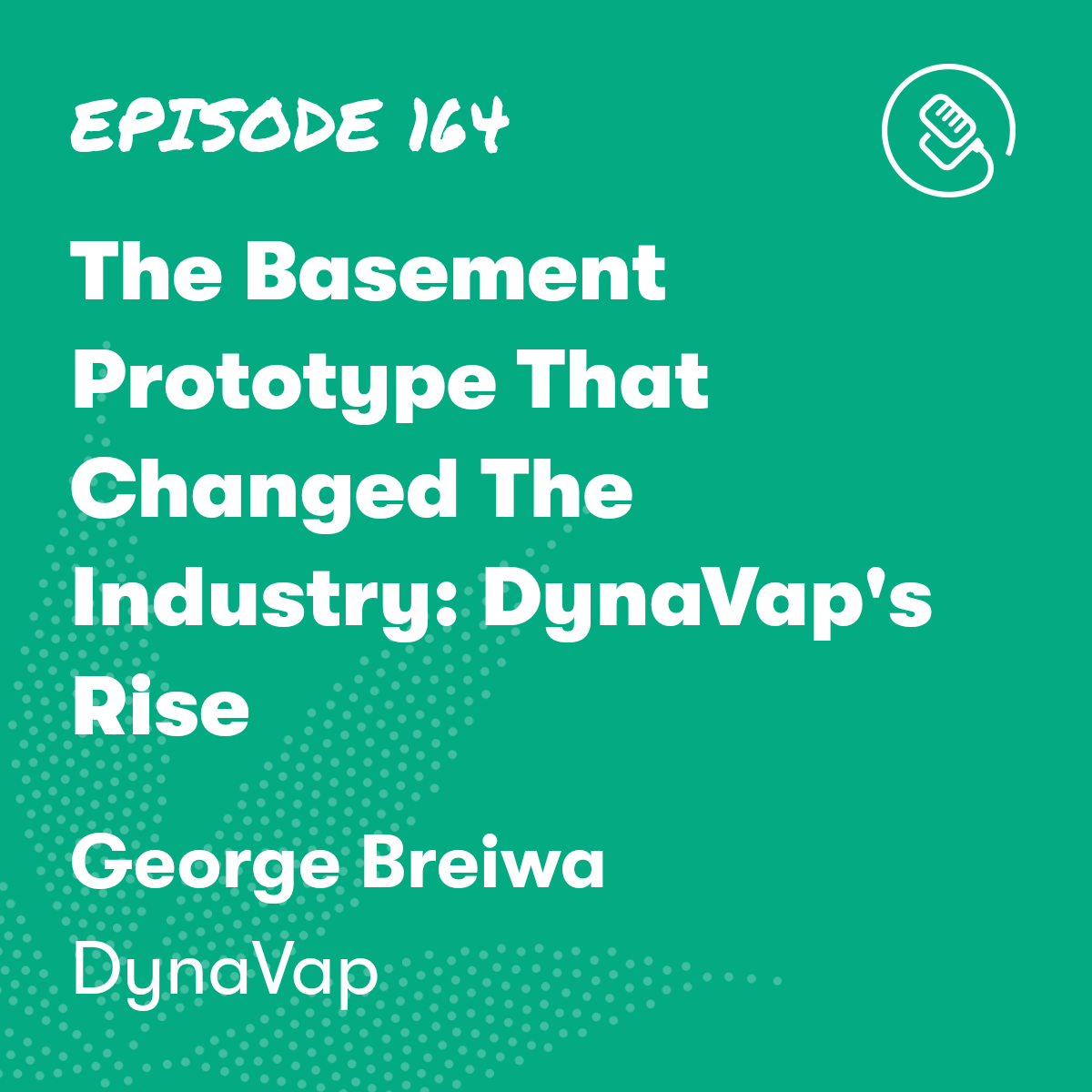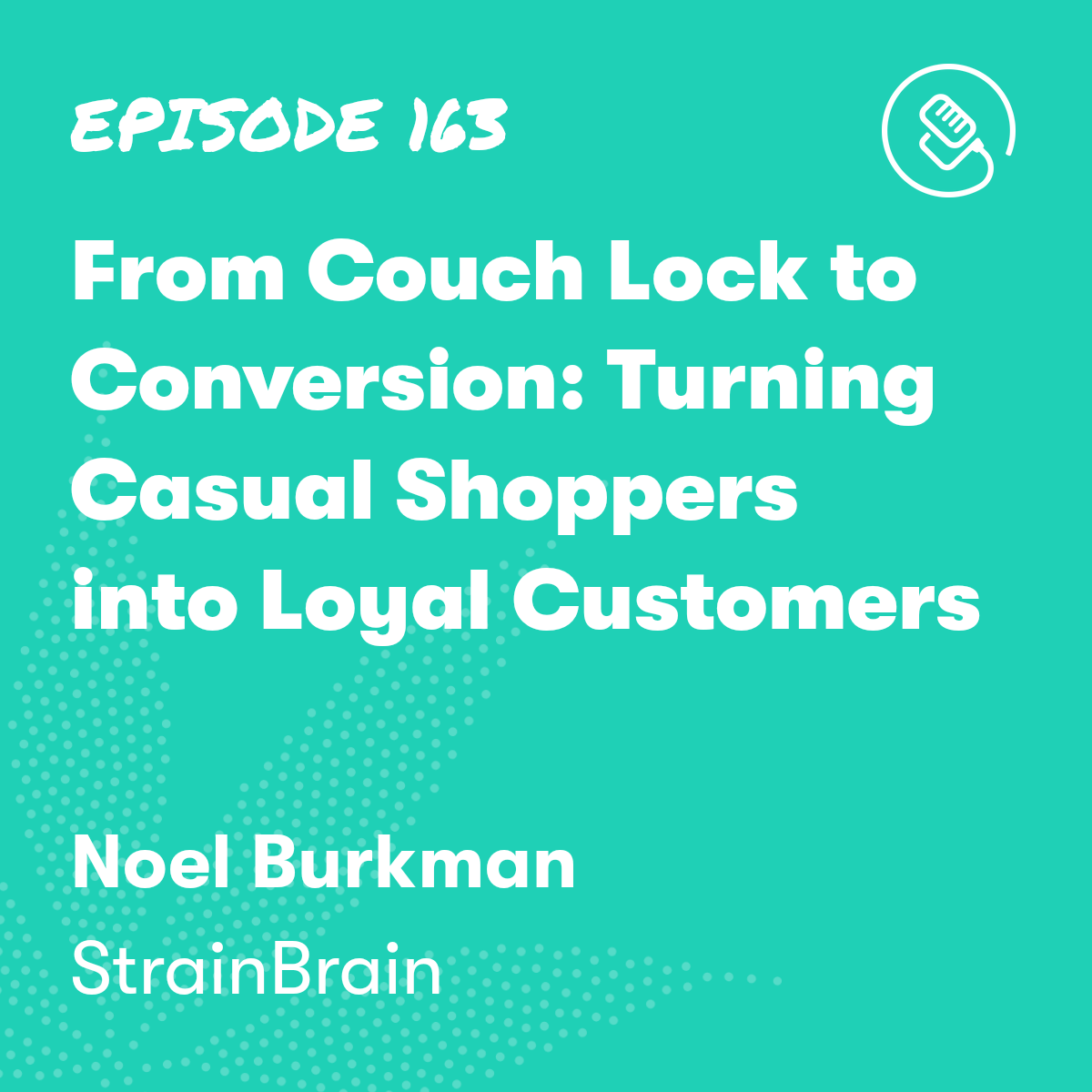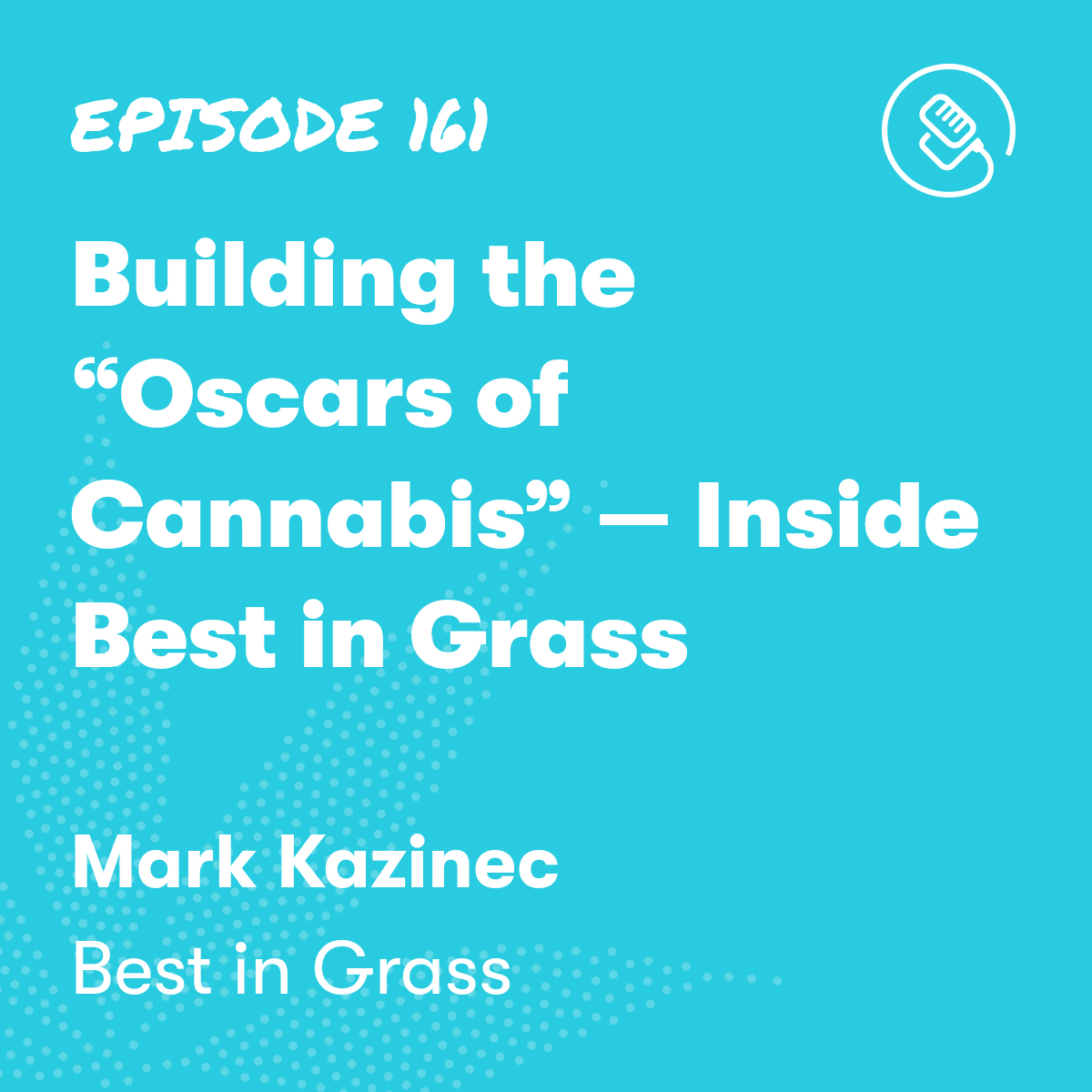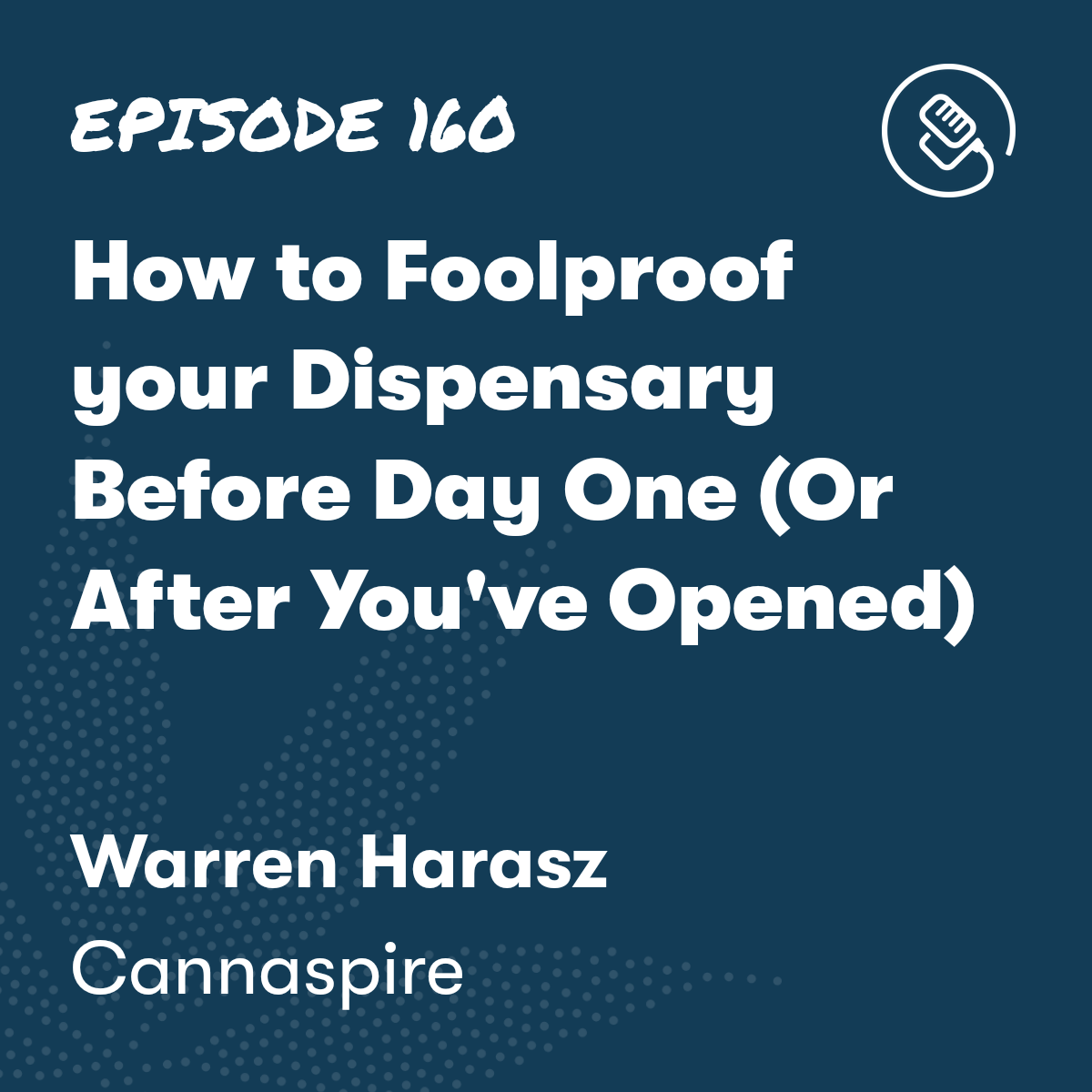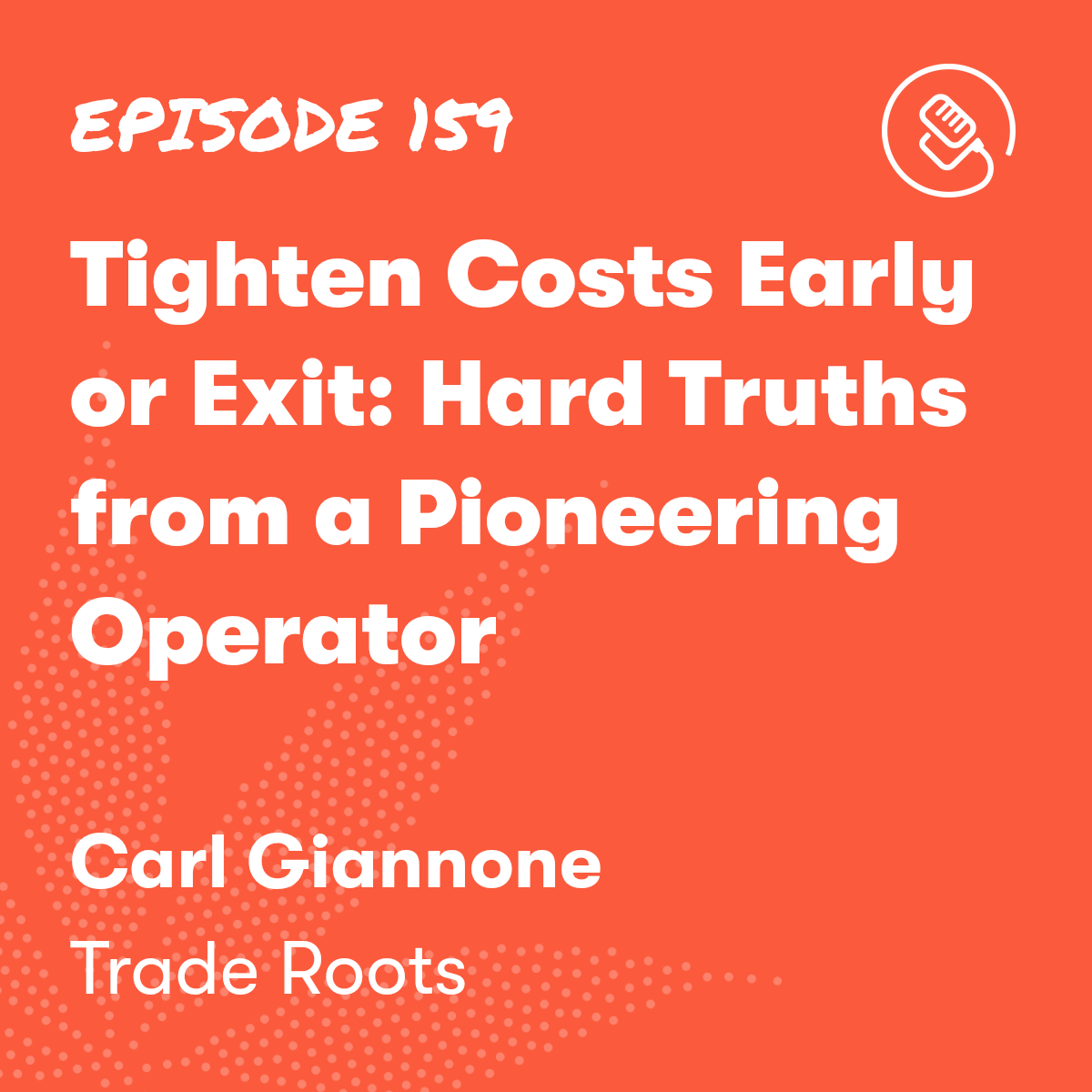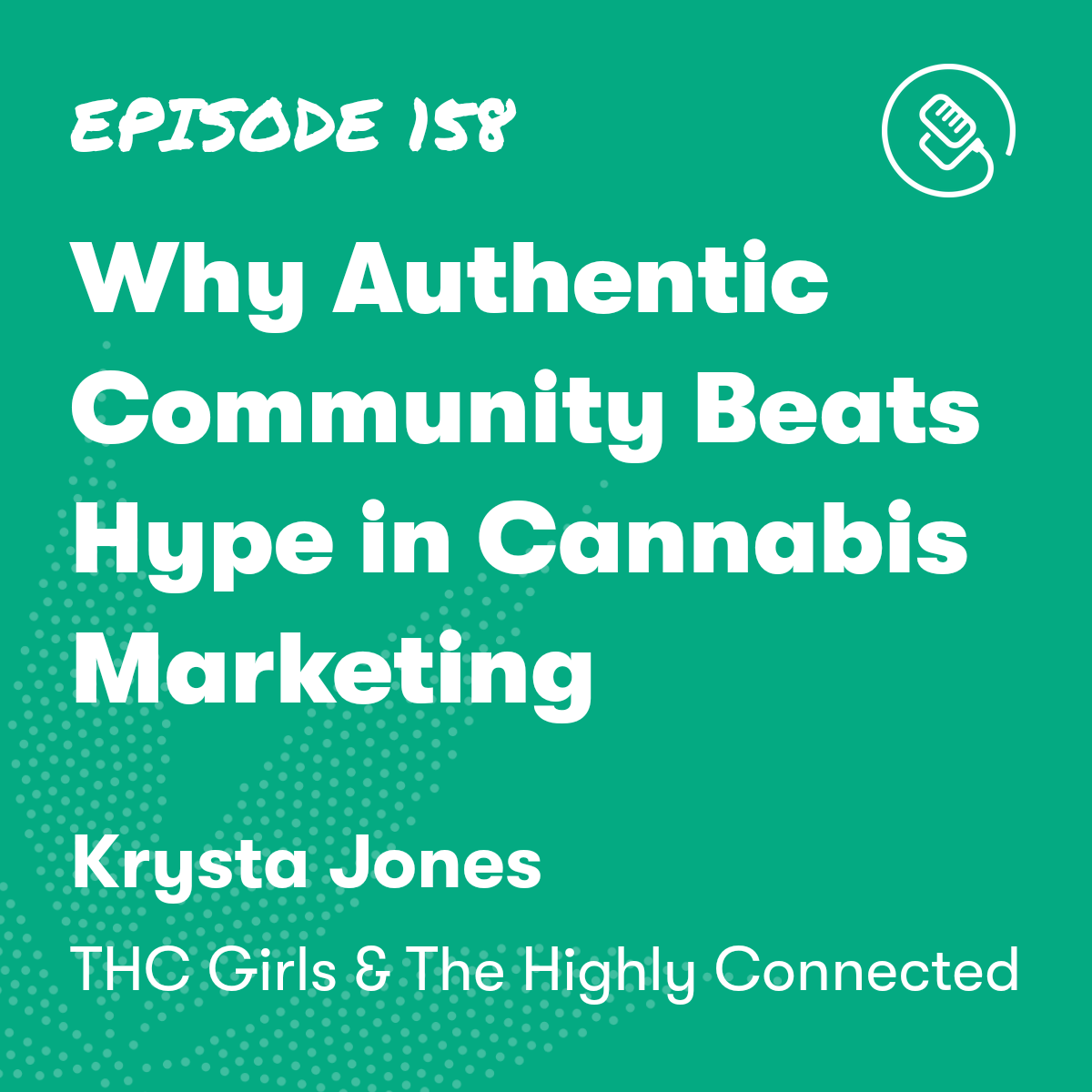

The Importance of Investing in Bud Tenders for Business Success
Episode Description

Episode Transcript
Katelyn Coskey: The turnover rate is insane. But if you're educating your bud tenders, you're promoting from within, you're providing further education opportunities, you're offering a competitive salary or hourly rate, the likelihood of retention obviously jumps, and that's going to really differentiate you from your competitors.
Tom Mulhern: Welcome back to the Kaya Cast podcast. I'm your host, Tom Mulhern, and before we start the show, I just wanna let you know that we are running a special promotion for 420 coming up in a couple weeks where we are giving away a whole year of Kaya Push for free. That's right. One Lucky Dispensary is gonna get Kaya Push per a year at their dispensary free for a year at one location.
That's an amazing, amazing prize to give away.
Kaya push is also giving away a second place prize to a dispensary for branded swag for your dispensary at one location. There are two amazing prizes that you can win. To celebrate 420 coming up, all you have to do is head over to our website, which is kayapush.com/420giveaway.
And for podcast listeners, you get a secret code that can give you more entries into the draw. So if you put in 420 Kaya Cast as a secret code, you will get entered in for more draws and more opportunities to win. Go over today and sign up for that free giveaway.
It's gonna be a lot of fun leading up to 420, but today on the podcast, I have a conversation with Katelyn Coskey, who is the director of Business Development at Point seven Group.
Point seven group are consultants in the cannabis industry for a whole bunch of different things, including branding and applications and, and, and they help businesses from start to finish really launch, grow, and scale, and. Katelyn is a perfect fit for this podcast. We had an amazing conversation.
Katelyn started out in the cannabis industry as a budtender, and her story of finding different opportunities and really embracing that self-education so that she could grow in her knowledge is just fantastic. And so I hope you enjoy this interview. I hope you enjoy this conversation with Katelyn Coskey from Point 7 Group.
Tom Mulhern: For the six years prior to joining Point seven Group, Katelyn rose quickly into a leadership position for a large vertical operation in Colorado where she supervised eight dispensary locations and served as the metric and compliance director at a 40,000 square foot site with over 9,000 plants. Her role included oversight of all compliance requirements for the company's five cultivation license.
Katelyn supports Point Sevens clients as the director of business development, sharing her extensive experience in dispensary and cultivation operation, including compliance, financial reporting, inventory management, staffing training, SOP development and seed to sale tracking.
Point Seven Group is a global cannabis consulting firm. Their world class team of experts with direct hands-on experience in the regulated cannabis industry, are known for agility, speed, and exceptional service.
They partner with their clients to build forward thinking compliant cannabis organizations, combining cannabis expertise with their clients local insights. They transform companies by examining, optimizing, and refining people systems and processes, and they love what they do.
Katelyn, thank you so much for coming to the podcast for being on the Kayak, and it's so awesome to have you here.
Katelyn Coskey: Yeah, I'm so excited to be here. Thanks for asking me to join.
Tom Mulhern: I'm excited to kind of hear your story and your journey. we've spoke before and you are actually one of the first bud tenders, former bud tenders that we've had on the show. And this whole podcast is aimed at dispensaries and dispensary businesses.
And we haven't had a bud tender on there, so you could. A resident expert on that.
Katelyn Coskey: I didn't know that. That's awesome. I'm honored.
Tom Mulhern: Yeah. So before we jump in there, tell me a bit about your background and how did you get involved in the cannabis industry?
Katelyn Coskey: I'm not gonna lie. It kind of just fell into my lap. I was on. summer long backpacking couch surfing trip in Colorado. I had never been west from New Jersey, really? Were swinging to see some mountains. Coincidentally, I met a really great group of people within the first week, and one of the women that I met in that first week was the director of retail for the dispensary chain in Colorado.
They ended up working for, she was just like, you are great. Your personality, like, let's just, let's just get you in there. Even if it's just for a month this summer. Just to get you some experience in the cannabis industry, I had intended on finishing nursing school in New Jersey, so I was like, okay, well this sounds like a lot of fun.
So I joined the team as a bud tender for Rocky Mountain High down in Denver. They had multiple locations like eight throughout the state. I think they've. I think they've released some since then. That was like nine years ago. But it was a pretty big operation then, and I, and I know it still is a somewhat pretty big operation now.
So yeah, it was just, it was kind of given to me. But from there is where I determined like, okay, this is the industry that I wanna be in. I don't know how I'm gonna make it because bud tenders make necessarily a lot of money. But I'm gonna make it work and. Yeah, somehow I did.
Tom Mulhern: So what kind of drew you, I know you, you said that you kind of fell into it, but what drew you to a career as a bud tender? Like, I mean, there's so many different ways you could go. You could be in cultivation or, but being that like frontline person, what kind of was the thing that w you said, yeah, this fits me.
Katelyn Coskey: I've always said that people are my passion because I, I genuinely love talking to people. I mean, I was a kid always getting yelled at in class cuz I didn't know how to shut up like it was. I really enjoyed talking to people and especially when in the bud tending sense of things.
You're having to constantly extract information from people to give the best advice for them. And so you're really learning each customer's story as time allows the lines out the door, you know, you have to move a little faster, but depending on the situation and the scenario and the person, if they're willing to open up to you, you really get to connect with people.
So it was just my connection with people and my like natural gravity towards people and their stories and just listening and being in that role to be able to not only listen, but to be able to also advise was really, really interesting to me and exciting.
Tom Mulhern: how did you learn about the plant and so that you could advise people? Because that's one of the biggest things about being a bud tender, is knowing the product, knowing what people need when they need it.
Katelyn Coskey: Yeah, the Colorado market was pretty in its infancy then, but there was brands like Mary's Medicinals that made it a point to provide the budtenders with educational materials. Some did, some didn't. So I really dove into educational materials. Per brand if they provided them. And then also did a lot of online research and definitely a lot of experimenting.
Plus online reading, there's a lot of resources out there that, that are absolutely free to you to learn. Cause as mentioned previously, you're not making much as a bed tender.
So unless your company is shelling out that cash for you. You might not, it might just be too difficult for you to pay for this course. It's not that you don't want to. And so I was just using the free online sources and then my coworkers.
Tom Mulhern: So what did that career growth from budtender to director of business development at Point 7 Group look like? You know that that's a pretty steep growth, a career growth path. What did that look like and how did you end up at Point 7?
Katelyn Coskey: Honestly, for me, one of the most differentiating factors that I found, about myself through the industry and like when I look back is I really cared to actually learn compliance because when you're trying to step growth in this industry, you can't go to the next step if you don't even understand the regulations that you're operating under.
What I have found when just through managing, is that a lot of bud tenders, they didn't seem to take that initiative to actually sit down and read the regulations of their state, which one blows my mind because you are held liable. If you it, like yes, the license entity will get a fine, but you also get a fine and you also get taken to court depending on the state and depending on what the infraction is.
But it's crazy to me the amount of people who don't actually understand what they're operating under and the rules. And I think that was my biggest, like up on a lot of my peers at the time is I was actually taking the time to understand what we were actually operating under.
And a lot of that had to do with the first general manager that I worked under. My first day like handed me the book. I was like, you need to understand this, you need to learn this. And I took him seriously and I was like, Gary, you're right. Like cool, let's do this. And then it ended up being where he was let go from the company and we were kind of in this period of, we just didn't have a manager
It was quite interesting and I naturally just stepped up to like, okay, well let's learn how to do the manifest. Let's learn metric. Let's do this, let's do that. Not that I necessarily knew, like, okay, this is, this is my forever career goal and this is the industry I'm gonna be in for forever. But I knew I really enjoyed it and I wanted to see, I did wanna see where it could take me.
So it was just kind of a like, yeah, I'm gonna take on more responsibility. The opportunity is actually right here.
But when I got the offer for Point 7 Group, I had to make the hard decision to leave the Wheat Ridge store and join Point 7 full-time. And then I just had a few titles from there. Like I started at just a consultant helping people with their applications in terms of operations.
And then I transitioned to the client Success Manager. And it wasn't until March of last year that I became the Director of business Development, which is a really fun role. And I think
because of my operational background, I get to stay with the client once signed and actually continue to do that operational consulting, which is, that's what I enjoy. Like I, that's, I'd love taking the experience I, that I've learned from this past nine years and actually helping people decide like, okay, this decision might not be that great. We can do this. This is how you avoid that, that band-aid won't last for forever, so let's do it like this. And that's a really unique position that I've somehow gotten myself to, is to be able to do that still while also learning a new business skill of being the business development person for Point 7, which is really cool.
Tom Mulhern: You know, you are really unique in who you are. I think it just blossoms out of you that. What other bud tenders are just sitting there reading the compliance and, and that like, that's, that, that shines through you in, in what you've done. so say you open a dispensary and you are creating a training program for bud tenders.
What would you do and how would you kind of share the why of your business? We're gonna get into Point 7 pretty soon here, but I just have one more bud tender question. How would you create a training program for Budtenders if you were opening a dispensary?
Katelyn Coskey: I would definitely make sure it's digital so people have access to this cuz one's one of the things that I noticed initially is sure your a dispensery would have an SOP book that was like this big. Printed in a binder one copy, and so I would make sure that everything is digitalized and that we're touching on not only my internal, like this is how I would like you to behave, and this is the policies of this company, but also on the plant science.
That should be something that I think is honestly quizzed on. , like, are you gonna lose your job if you're not passing? No. Would you likely not be put on the sales floor and at a receptionist desk? Yes. Making sure that there's compliance questions and education and actually science education would be, it's critical and it's one of the things that I think is often left on the table where.
if you don't know the science behind it you don't know how to advise if you truly don't understand the science of it. And then one of the things about keeping it digital, which is really nice, is as your vendors change and change their ingredient list, add skews, things like that, that can all be updated in the training modules as well.
So you wanna make sure that your training has the science, compliance and then vendor specifics. So if you're selling Wana gummies, your bud tenders should understand the ingredients and the effects and this and that of the Wana gummies that you're carrying. So I think just making sure that you're providing updates as needed, that you're actually holding accountability.
Just saying, here, read this to a lot of people that's not, they're not going to read that. But if you are doing, even if it's quarterly check-ins and that check-in being like, here's 10 to 15 questions, like, let's just make sure that you're actually retaining this information, that's gonna be really helpful.
What we used to do in Wheat Ridge was we would hold, Team meetings would order a pizza. If we had a new vendor, it would be very vendor specific of the education on that and their products and things like that. In Colorado, the regulations were constantly changing with red lines, once again, holding a little pizza party updating that and then making sure that the, the updates that you're providing live are actually being transcribed into your digital copies and that there's just accountability.
I think one of the biggest things is as a manager is say something goes wrong and there's an infraction, and the budtender says, well, I didn't know. I didn't know that this wasn't allowed. Well, if you have this training module that you've, you've tested on, you've quizzed, you've inquired about, and you have that record, and you can say like, actually this was asked on this day.
You have, you've signed the bottom of this quiz. It protects you and your license significantly.
Tom Mulhern: It sounds like your dispensary, this imaginary dispensary is gonna be, you're gonna have some well-trained bud tenders in there, cuz you're gonna make it fun for them.
Katelyn Coskey: Yeah. And I think training's just the most important aspect of, of, I, I think the whole business, but particularly retail. Say you're a new dispensary, like you haven't opened your doors yet. And even if you have, find a space in your facility where you can do mock transactions, but have them do it with their peers.
What are they saying? How are they reacting to questions? What's their actual tone like when they're speaking to someone if they're not taking it seriously and their, their responses to the questions are kind of half-assed, like, that's not gonna change when the customers come to play. If anything, they're gonna get more annoyed because the question is, the customer's asking questions like that was, it's one of the things that as a budtender you have to be prepared for. There are people who know nothing about this, so they have a thousand questions, and it is your job to educate them without frustration.
Tom Mulhern: And there's those people that know a lot about it and have a thousand questions, and you have to put up with, well, now I'm looking for a certain terpene profile on this. And if you don't know, if you can't answer their question, they're gonna go somewhere else. Like that's, that's just the long and short of it.
So now you're at Point 7. So what exactly does Point 7 technology do?
Katelyn Coskey: I always say that we work under three umbrellas. So we do pre-application strategy, things like getting your business plan, your financial model together, helping you with a community plan. Cuz more and more you're seeing that being a really prevalent part of the application. Filling in team gaps.
Anything that we can to prepare you for the inevitable application period.
And then we have the application period, the super fun narrating process typically. So, Most applications, if they're merit based and competitive, they're going to have you responding in written narratives. What that looks like is a little bit different depending on the state.
Could have page limits, like five to 10 pages could go based off word count or they could just be full on free for alls, and you get to put every ounce of information that you want. So through that process, we are the application writers. So we're the ones actually helping you. Create these narratives because so many people, they don't realize that these applications need to be technically drafted.
So you need to have technical writing skills, you need to have an understanding of that state's compliance cuz you need to be citing it throughout the entire application. But you also in the midst of all of this need to make it a compelling story. I think a lot of people through the application phase, they leave out that storytelling piece and it deducts cuz when you think about it.
these reviewers, they're normal people. They have to get sucked into your application for you to really stand out, but you don't wanna stand out for the wrong reasons. Like you obviously wanna be like an extremely compliant application, but I think the most important part is just also adding that compelling aspect to it as well.
Indicating like, this is how connected I am to this community. This is how I'm going to expand this community. This is how I plan to help bring jobs here, and how many jobs and at what pay. You wanna get as granular as possible to just make them know that like you're not just here. I mean, people think this is a cash cow, but when you really break it down, cannabis is not a cash cow.
But you're not just here to buy into the supposed cash cow. You're here to. a business of the community and really bring that community up with you. So that's the application piece. And then the post licensure piece. Many people, okay, they have this license in hand. Now what , who's gonna train them? Who's gonna hire them?
Who's gonna help me pick every single fixture and a piece of equipment that I need to sustain this facility? Who's gonna get me through the inspection? We will. Is the short answer. So, one of the things that I also just, again, love about my personal journey in this space is I get to take that early on experience and then put it back into action for my clients.
One of my, to this day favorite clients was a Missouri dispensary, and I was able to go out there numerous times, helped them set up, did their inspection with them, went back like a year and a half later to do training for some of their new hires. And it's just, it's so fun and rewarding because you see
where we're helping you stand up your business and then watching that business thrive, that is the most rewarding part of what we do.
So yeah, those would be the three pillars, the three umbrellas.
Tom Mulhern: So you develop basically a whole strategy plan with your clients from start to finish, but how do you help people actually execute on these roadmaps that you've built for them, these strategy plans that you've built for them?
Katelyn Coskey: One of the first steps post licensure is doing a commitment check, going through the application, being like, okay, these are all the things that we committed to in their application. And then determining, do we need contractors for these? do we need to develop this training and get it into our client's hands?
In terms of fixtures and such, do we need to hire a designer? It's taking that commitment list, breaking it down into categories like Point 7 handles. We make introduction to contractors our client can handle internally. Paperwork things. So we take that and kind of just delegate from there on who gets what, and we're guiding through the whole process.
So it's a lot of bridge building, which is also great cuz again, it's just taking the people who we've met in the industry and spreading them further and making their network grow.
If I introduce them to more.
Tom Mulhern: Now you've probably seen it all when people are launching their cannabis operations, but what are some of the common blind spots that people have? Like things that they overlook or, you know, they forgot to write their name on the top of the application, whatever it is. What are, what are those like common blind spots that people keep making?
Those common mistakes people keep making when they're launching?
Katelyn Coskey: I think some people definitely don't consider the cost of, especially security people when you tell them that a dispensary, security systems roughly like 75,000 to 125 K alone they're like, oh, we didn't expect that . Um, And then I think also just not creating relationships within their state of fellow license holders.
If you're a dispensary, you can only have one relationship with one cultivation because anything can go wrong in that cultivation at any given time, making their available products diminish.
So I think one of the things that a lot of people tend to fail to do is really network themselves in their own market, which just doesn't make them as competitive as the license holder as they could be. And that goes for any license. you're a cultivator, you need multiple dispensaries. If you're a processor, you need multiple dispensaries, plus multiple cultivators. So I think not networking enough, not thinking about the true expenses, not learning 280e to the extent that they should, especially as a retail license prospect. The amount of people that we have that I speak with, that they have no idea what I'm talking about, when it comes to 280e is alarming.
It's a pretty big factor in your profitability. And so if you don't know the ins and outs of that, you don't have an accountant that knows the ins and outs of that, that could be a pretty big flow, that could, that could destroy a dispensary applicant.
So I think it's just the lack of market research again, lack of networking um, and just not, not truly understanding the financials of this.
And maybe part of that is a lot of people don't want to shell out money for a proper financial model. Before they go down this, this pathway, but it, I mean, if the financial model does anything, it at least tells you that this is a viable option for you or this is not a viable option for you and you need to hold off.
Tom Mulhern: What are some of the most creative marketing ideas that you've seen cannabis retailers use to kind of grow their brand? Like you've probably seen some really great ideas and some really terrible ideas, but what are some of those like really creative, fun, interesting ideas that make them stand out?
Katelyn Coskey: I think it all comes down to your messaging and like your imagery. So one of the, the client who I was talking about earlier, actually, they teamed up with a branding company called Supper, and the artwork that they put out, Makes them so unique, especially in the Missouri market, cuz you don't, you see a lot of kind of plain Jane marketing,
But in terms of a dispensary brand, one that gets them recognized is they have a lot of artwork that comes out on interesting merchandise. So whether it be like your dab stomp pad, Whether it be a towel, it's something it's not, it's not always just like your hoodies and your hats. They come out with some pretty interesting things.
Like they had a limited edition poster that was, if you ever following already, that's only going to amplify you.
You're trying to create something that sticks to a mindset and that
brings other people to bring that compliment, like, wow, that sweatshirt's really cool. That design is really cool.
And then I think also being a part of the community, part of your brand, part of your messaging, part of who you are as a company should truly be interacting with the community.
Having community education events, community job fairs, that's all a part of your brand, making sure that you're a pillar of your community is a brand message, and I think it's really important, especially in terms of like job creation, job fairs, even if you don't have open roles.
Saying we're gonna host this community job fair with get, get a few different organizations and your team could be there supporting resume building. So bring your resume, we'll redline it for you, we'll help you build this. That's giving back to the community and that's a part of your brand.
Tom Mulhern: Now you also focus on compliance. And so what are some of the biggest errors around compliance as well? Like, you know, I, I don't know if you get those emails from cannabis media, but it's like every time that there's like somebody that's broken compliance, there's the big red thing that's like, ah, so what can dispensaries do to stay compliant and.
What sort of services do you guys offer to get help with?
Katelyn Coskey: I think the biggest compliance issue that is across the board always an issue in every state is inventory. People aren't tracking their inventory correctly. I, I know it sounds daunting, but I, I truly think you should be counting your inventory. At least you're on floor inventory twice a day. And I promise you, it'll get faster.
Your team has to get a method and a system down and they will, the first few weeks, it's gonna take forever. No one's gonna be happy about it, but they'll get accounting system down and that'll save you so much trouble. Even from the cultivation side of things like track and processing, tracking and logging your inventory correctly is incredibly important and for some reason, it's often just not, you go into a metric or a BioTrack and you see all these package tags that have all this material in it from a year ago that you know are not in your store or your cultivation or your processing facility.
The fact that they've been there for a year tells you. Right there. And then your inventory manager is not acting as efficient as they should be. And beyond that, your general manager or whoever it is, is not checking this and is not making sure that these packages are being pulled accurately, and that can take you down if you have pounds in your system that are not in your store you can't just erase that. Like that's, that's tracked. And so I think inventory is definitely one of the biggest things that people just fall through the loop on. And then on the dispensary side of things, they don't select their POS system properly.
Selling over a limit. I've heard more horror stories than I should about bud tenders selling over limit and again, depending on the state, yes the license gets an infraction, but you as an individual also get a fine and have to go to court. The easy fix there is picking a POS system that has automatic purchasing limit notifications. But I understand that some people are operating with older systems or they don't for budget reasons, use one that doesn't.
But making sure the bud tender has an education of the purchasing limit and making sure that they recognize the consequences to themselves. And again, that's the education piece and that's training.
It's interesting as you're talking, a lot of those compliance issues, obviously there's legal ramifications, but there's also customer experience ramifications. Cuz if you're not doing inventory, I, I went to a local dispensary here and they gave me their menu and it was just, Sharpie just scratched out everything.
Tom Mulhern: And you're like, there's a better way guys. Like I know there's a better way. I know the systems you're using and you're not utilizing this technology. Like, and so compliance is, it really is two-step. Like you can ha get in trouble, but also if you're not doing some of those things, your customers aren't gonna come back cuz they're gonna go down the street where they, you ha they have the inventory that I need.
They have educated bud tenders. It's not just price. It's, it's that experience that is gonna make your business grow.
Katelyn Coskey: 100%. And I mean, even as simple as updating the online inventory, you know, if someone comes in two, three times and each time you don't have what your website says. You have, as you just mentioned, there goes that experience. They're gonna go to the, to the guide on the street who somehow manages to update their menu like you don't.
Tom Mulhern: What is, you know, you, you've had a lot of experience with dispensaries and working in dispensaries and helping dispensaries grow. So what is one tip that you would have for a dispensary owner to kind of grow their business?
Katelyn Coskey: Comes back down to education. Really, really invest in your budtenders. if you have the extra finances to do additional, likescience programs and, and plant education programs do it. If you have the resources to make sure, like whether it be a little program like we supply your bus pass, are we give you a incentive for riding your bike to work. Like make it a family. This isn't just a business. One of the things that really stood out to me in the last dispensary I worked for is that we were a family and that made people want to stay. Cuz one of the things that dispensary owners, I mean any license holder is kind of find bud tenders, cultivation techs, processing techs.
The turnover rate is insane. But if you're educating your bud tenders, you're promoting from within, you're providing further education opportunities, you're offering a competitive salary or hourly rate, the likelihood of retention obviously jumps, and that's going to really differentiate you from your competitors.
If Mary down the street has a new bud tender every week, but you've had the same one for x amount of years. One, their education, I guarantee you, is going to be on the plant itself and on your products is going to be significantly stronger. And two, they're going to gain a reputation and a personality in your community.
the people of your community are gonna know who Gary, the bud tender is because they've been going to him for a year now. So I think really focusing on the education and the happiness of your bed tenderers is, is critical. Like make sure your retention rate is not the industry standard.
Tom Mulhern: if you can create an environment where your employees love being there and they're happy and they're learning and they're like, they don't wanna leave because they know that that customer's gonna come in, that always comes in and is gonna need their help. Like, that's what's going to make that retention rate so much smaller.
Katelyn Coskey: And encouraging growth. I, I mean, obviously if you're a one man shop, there's only so much growth that can happen, but indicating that you have strong relationships with other license holders and that maybe, maybe I'm only one store and I don't ever want to open anything else.
But I have a network where if, if I feel that you've outgrown this bud tending position, that I could happily pass you along because I've put the education resources into, into your growth as a career. At any job, you wanna be working for someone who wants you to succeed.
If you're working for someone who only ever wants you in the position that you're in and they don't care about your growth, you're not gonna wanna be there and you're not gonna wanna stay there. But if you prove that you actually care about these people, which you should, cuz it is your business and they are working for you.
the success rate of your store is gonna go up. Your, your customers are gonna be happier, your employers are gonna be happier. And yeah, I mean, who doesn't wanna see their people succeed? Right.
Tom Mulhern: Oh, man. This has been so good. I, I think we could just keep on going on this for, for a while, but how can our listeners find out more about you and Point 7. And, you know, kind of connect with what you guys are doing because, you know, I'm sure there's so many people that are either looking to launch right now or want to grow, or they're like, ah, I need, I need some help with this.
So how do they reach out to you, Katelyn?
Katelyn Coskey: Yeah, definitely use our website. So point7group.com. We have a contact us form. You can fill out a little tidbit about the state you're interested in the license type. You're interested, and I encourage you to use the additional information section because any extra tidbits that I can learn prior to our call helps cause sometimes, you know, especially if it's a new state, like you have questions, I'm gonna make sure I have those answers.
So if those are in the additional information box, I can do that prior to our call. And then obviously we're, we're also on social media, so at at Point 7 Group is our Instagram um, and Point 7 group is our Facebook as well, we're, I try to be super responsive on there, but the best way is definitely through the Contact us form on the website.
Tom Mulhern: Well, thank you so much for being on the podcast and I know that you we're gonna have to have you back because like I said, we, I wanted to keep going, but yeah, I really appreciate you sharing your insights and your story of your career growth as a budtender to where you are now helping other dispensaries launch and grow.
And it's, it's so encouraging and so, so fun to, to hear you talk with the passion you have.
Katelyn Coskey: Well, thank you. This has been awesome.
Tom Mulhern: Man, I was inspired, especially by that last part where she was just talking about, you know, how dispensary owners can help support, help grow, their bud tenders because that growth mindset is such an important part of everything we do at Kaya Push, and everything we do as a company really leads to that.
That development, that growth mindset. And if you are a dispensary owner and you want to grow your business, you want to grow your bud tenders, you gotta invest in them. You gotta give them opportunities to learn, to grow and, and, and to really grow in their career. You're gonna have a happy store. Happy bud tenders, happy customers.
So again, thank you Katelyn, for taking the time kind of unpack her story of going from being a budtender to now you know this, the director of business development for this amazing organization that's working in the cannabis industry to help hundreds of dispensaries across the nation grow their business.
Also, don't forget to subscribe to the podcast and don't forget to enter into our 420 giveaway, which is happening soon. So there's still time if you go. https://kayapush.com/420giveaway. You can enter and use that secret code of 420 Kaya Cast to get extra entries into the draw.
So thanks for listening to the Kaya Cast podcast and we'll see you next week.



